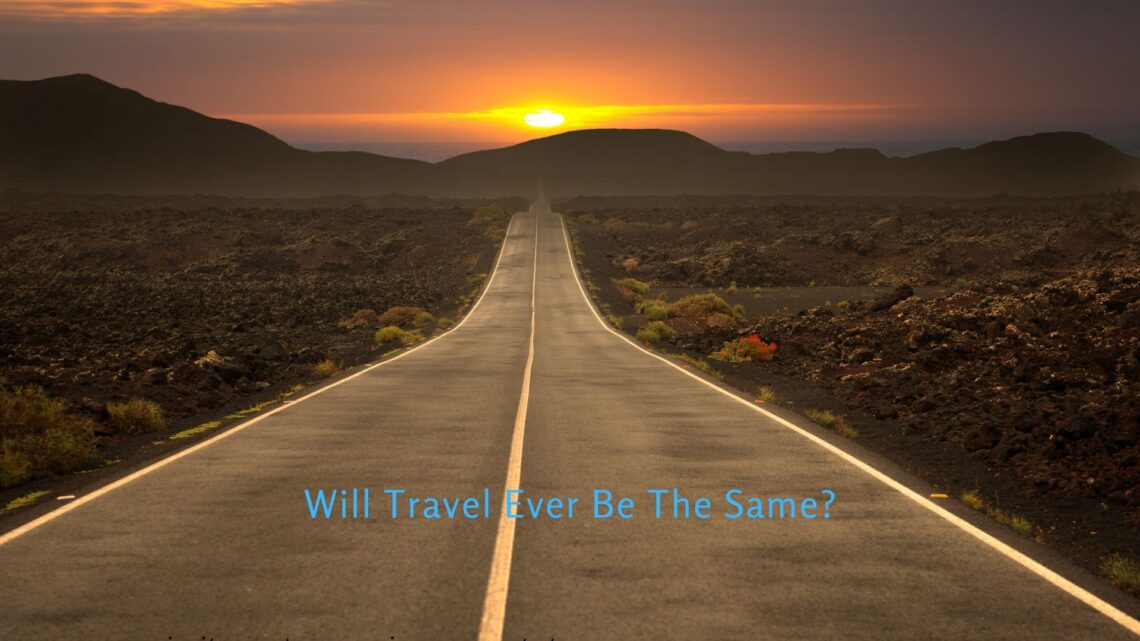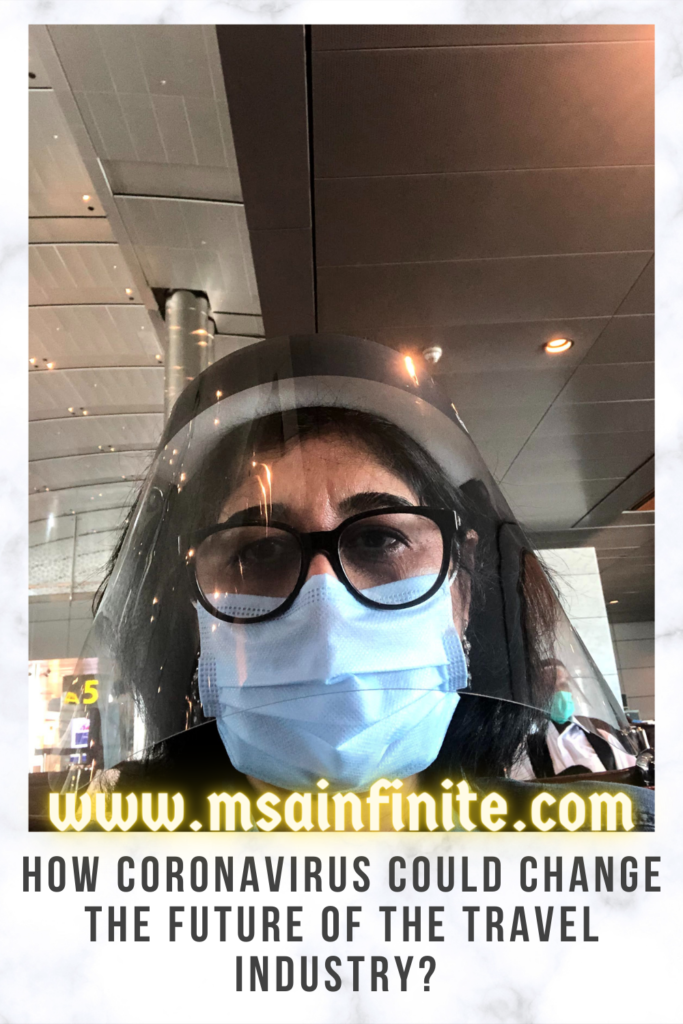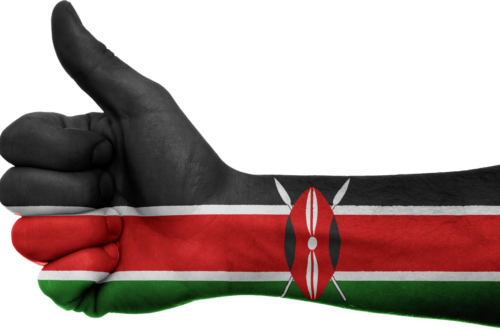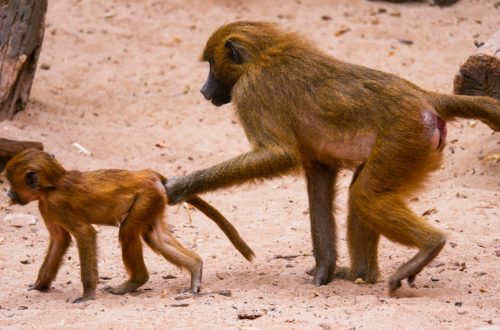
How Coronavirus Could Change The Future Of The Travel Industry?
Coronavirus (COVID-19), struck the world as a catastrophic, raging storm. It has destroyed many lives in its path and it continues its wrathful journey. It has forever changed the future of the travel industry.
This unprecedented cataclysmic event of the 21st century has clobbered mankind since its inception in 2019. The travel segment of the hospitality industry within months, was bulldozed by this virus. No one saw this coming and no one could stop this from happening.
Table of Contents
The Impact of coronavirus on the hospitality industry?
The hospitality industry as a whole has been significantly impacted by coronavirus, (COVID-19). Thousands of people’s livelihood has been snatched by this virus. Globally, the hospitality industry revenue loss is in billions and with regards to the travel sector, The International Air Transport Association (IATA) previous analysis of collective revenue loss of over $113billion in March was made before countries implemented travel restrictions which brought the industry to a complete halt. This figure is subject to change.
The last time the travel industry had been affected to a certain degree was post the 9/11 tragic incident which took place in 2001. Worldwide governments responded collectively towards this tragedy. Globally, at all airports, stringent safety protocols were urgently implemented to not only provide necessary security for all those who were traveling, but to also assure travelers that it was safe to fly again. The passengers were asked to take off shoes, belts, and bling bling that interfered with the body scanning machines. Liquid bottles containing more than 50ml were removed from hand luggage. The rule of what you could and could not carry in hand luggage was revised. Furthermore, US carriers on selected flights had their own inflight security personnel on board.
However, experts are proclaiming coronavirus crises to be the worst ever in the history of the hospitality industry. It has literally brought the industry to a complete standstill and this was not the case with 9/11.
Travel industry has started to emerge from the quarantine.
The lockdown period for the airlines was time for them to strategize their future plan of action. It allowed an airline engineering department opportunity to conduct extensive maintenance and cabin refresh program on all its aircrafts.
Furthermore, during this time, airlines have worked with the airport management teams, other segments of the hospitality industry, and government departments to develop and implement new safety and hygiene rules to rebuild confidence in travelers to encourage them to start traveling again. While drafting their coronavirus plan of action, they have kept safety, hygiene protocols for their customers and employees in mind. The middle eastern airlines and government have been showcasing this by producing videos to show to their customers that, they should be confident that their preferred airline has safety and hygiene measures in place and it will be safe to once again travel with them.
'Travel Bubble' trend emerging to kick start the travel industry.
‘Travel bubble’ is a new trend that is seen emerging among countries to kick start the travel industry. Countries like New Zealand and Australia, where coronavirus numbers have been lower than those compared to United States of American, Europe, UK and other countries, are going to develop what they call, ‘Australia-New Zealand Travel Bubble.’ This would allow residents of both countries to start traveling from one country to the other without going through the 14-day quarantine restriction. Their travel bubble could start as early as September 2020.
Another such ‘travel bubble’ has been formed by Estonia, Latvia and Lithuania.
European countries and UK have also started relaxing their travel restrictions as we approach the summer months,. However, some countries like Germany will highlight separate risks for individual countries. List of European countries open for summer travel. It is still uncertain as to how citizens of countries outside these parameters will be welcomed. Would they be put in 14-day quarantine? If so then, why would a foreigner want to visit a country that imposes this rule? Nobody wants to travel thousands of miles only to be confined to a hotel room or a government-designated quarantine venue.
People are more than ready to travel and the hospitality industry needs to restart, so the question is, will this new trend be duplicated by other countries? Will it define how we travel in the near future?
When will international travel resume?
After having worked in the hospitality industry for over 25-years, I can confidently say that the dynamics of the travel business will change extensively.
As mentioned above, ‘travel bubbles’ will be formed to encourage travel among the selected countries in that ‘bubble.’ I see this starting from June, 2020.
USA never stopped their domestic travel and other places like Australia have recently lifted their ban on domestic travel. Therefore, I anticipate that some countries will start relaxing their international travelers’ restrictions by July or August 2020. They will start welcoming residents of selected countries, while restrictions will continue to apply for some countries.
Furthermore, each country has its own coronavirus ground reality dynamics and individually they need to analyze the situation as per their country’s economic and social structure to determine, when it would be safe to allow international travel. However, one thing internationally, the individual country government would need to do is that, they would need to adhere by international safety and hygiene protocol for at least their airports. Just like what happened after 9/11.
Additionally, if a country wants to revive and sustain its tourism industry then it would need to develop safety and hygiene protocols in private sectors as well as other segments of the hospitality industry.
Will the travel industry see an increase or decrease in airfares?
Airlines have suffered losses in millions of dollars. They have critical cash flow issues and never has the industry experienced such a horrendous situation. Hence their decision to increase or decrease fares will be subject to several factors at play.
In my opinion, when the doors of the airlines are once again opened to a city, we will not immediately see special offers thrown into the market to attract customers.
The reason for saying this is because many people are still holding on to their issued international tickets. Why is this so? Two reasons: lengthy refund time was stipulated from airlines and agents were also not willing to refund and discouraged their customers from applying refunds.
Airline such as Emirates, encouraged passengers to retain their ticket and informed them that their ticket would be good to use for 760 days from date of original ticket issuance. This allowed customers ample time to utilize their holding tickets. Also, why would an airline want to create mayhem by reducing fares and have those passengers who are holding on to their tickets start making a beeline to their office and travel agents for refund of their unused tickets, in order to take advantage of the deadly special offers? This would simply mean loss of revenue for an airline and the travel agents.
Furthermore, my guesstimation is that when travel resumes, the fares that would be available would be flex, refundable fares. All special, super savers to long-haul destinations would be taken off the market for at least a short period of time. Again, for the same reason as mentioned above.
As for the fares increasing, I agree with IATA’s theory that fares could be increased anywhere from 43 to 54% depending on the destination. Airlines for several months will not be able to reach their breakeven load factor of 77%. The reality of the situation would be that, demand will be less than supply.
In addition to the above, I personally do not foresee carriers like Emirates, Etihad and Qatar to put into practice the theory which is afloat in the market regarding, ‘leave the middle seat empty.’ The airlines have already incurred losses in millions and none of them would want to worsen their cash flow situation.
In addition to this, I believe business and first-class fares could skyrocket. How will it affect this segment? Well, some of these business and first-class travelers will not even raise an eyebrow, especially if their company or client is paying for their travel. Others might crib and cry and downgrade their travel behavior to fly business instead of first and then use their miles to upgrade themselves, but they would still choose comfort and pampering than sit in economy class. Who wouldn’t! Lastly, I think that high-end travelers could consider reducing the number of journeys that they take in a month or a year than to relinquish their comfort.
What changes could be seen in the future of the travel industry?
The travel industry took almost three years to recover from the tragic incident of 9/11 in 2001. It is predicted that the travel industry could take anywhere from three to five years to recover without a vaccine or antiviral from coronavirus.
Due to 9/11, strict security measures were implemented worldwide. To-date we are following the same safety regulations. Initially, the passengers were perturbed by all the new rules, but it all soon became a norm. There are some of us who even changed the way we used to dress for our travel. We don’t want the hassle of unzipping boots, removing a belt, and taking off those heavy gold chains around our waist and neck.
Covid-19, unwanted welcome in our lives, will bring changes that we could never have envisioned and this virus will forever change the way travel business will operate in the future.
- Germophobic people, like myself who were considered eccentric, will no longer hold the title of being a freak. Other intelligent people will also be seen wiping tables, seats and other things to maintain hygiene.
- Masks, gloves, sanitizers will become necessary travel items.
- Passengers will have to arrive at least four hours prior to their international departure flight and for domestic at least three hours ahead of time to go through all the safety and hygiene checks that would be enforced by individual airlines.
- Smaller and older model aircraft that are generally used for domestic travel will have to practice inflight social distancing. They would no longer have passengers seated like sardines, packed in a small container. Maybe, they will decide to leave the middle seat empty (though this could be detrimental for their revenue), or like Frontier Airlines they will charge for a guaranteed empty seat next to themselves. I think many of us would not mind paying the extra for the long-haul journeys, and isn’t it better for an airline to charge a nominal amount then to earn nothing for an empty seat? However, as mentioned above this practice will be disastrous for their cash flow and I am apprehensive about the longevity of this idea.
- Airlines might eliminate some cities that they were previously flying to from their route and add new ones, depending on the coronavirus risk factor of a country. Along with this, the frequency of flights to a particular city would also be affected due to decreased number of passengers willing or able to travel.
- Some companies are already thinking of a four-day workweek for their employees. This would allow people a long weekend break and if disposable income is available then, people would consider taking short distance holidays. Travelers would not necessarily want to travel to a far off destination. For instance, a resident of Germany might be happy to take a train journey to Austria, spend couple of nights and return home. Therefore, short-distance travel by car, train, ferry, or a domestic flights could be on the rise.
- We could also see a decrease in domestic business travel as virtual technology which has already been on the rise since the lockdown will continue to play a pivotal role. During this lockdown phase, people have already adapted to using Zoom and other forms of virtual technology to communicate with the outside world. Furthermore, this new trend has given some companies ways to cut down on their overall costs of operations. Here again it is a win-win situation for the company offering its services and for the client receiving the service.
- Business and first-class lounges, if they decide to maintain buffet lines then they will have to designate servers to maintain hygiene, which means hiring more employees and in this arduous, financial time no airline in their right mind would want to do that. So instead, the tempting buffet spreads will be of the past. Pre-packed plates will be on the buffet line with packed cutlery. Bon appetit!
- Wipes would be available next to the coolers containing water and other beverages to prevent travelers from touching the fridge handles. Sanitizing staff will be constantly on their feet with mask and gloves on, with spray bottle and wipes in their hands.
- Check-in luggage could go through a disinfection process.
- Airlines have already announced that no hand-carry bags will be allowed. Only laptop bag and woman handbag can be carried onboard.
- Pre-packed meals, disposable water and wine bottles with plastic glass will become a norm. I can see business and first-class travelers cringe and frown at the sheer thought of this. Don’t fret, maybe by 2022, champagne will again get served to you in a tulip glass.
- Airports open areas in terminals will have social distancing signs put in multiple places. Seating at boarding gate waiting area will have passengers sitting apart from each other as maybe two or three center seats would be blocked. One seat apart seating would be seen as normal. Some people while waiting for their boarding could be seen sitting on the floor, as they might not want to risk sitting next to a stranger.
- Dogs our faithful friends are known to be great at sniffing drugs, ammunition, and other illegal items. Now in the United Kingdom, they are training them to detect the COVID-19 in asymptomatic travelers.
- Some countries might introduce ‘Health Clearance Certificates’. You know the yellow fever certificate that one has to carry when traveling to Africa. Well, something similar we could be carrying for coronavirus. Of course, this would need to be issued 24 or 48-hours prior to travel from the point of departure. However, I would be apprehensive about the authenticity of it and the manageability of this process. Also having this in your pocket, would not be proof that you are not a carrier of the virus. The reason being that, there is no guarantee who you were in contact with from the time you got yourself tested for coronavirus to the time you boarded the aircraft. Therefore, this health clearance certificate could prove to be completely futile.
What safety, hygiene, and behavior changes could transform the future of the travel industry?

- Once international travel revives, the first lot of travelers would be the ones holding dual nationality. These people are the ones who would be anxiously waiting to travel as they would have citizenship or residency permits for another country besides the one they reside in. The reasons for their eagerness to travel could be their wish to exit the country they are currently living in, have disposable income so can afford to travel to take that much-desired break. Additionally, due to their dual nationality, they could have friends, relatives, a home, where they would happily stay for a 14-day quarantine period.
- It will become mandatory for passengers to wear masks during their time at the airport and inflight. Some airlines like, Emirates Airlines will also be providing hygiene kits containing: masks, sanitizer, wipes to each passenger at the boarding gate.
- Qatar and Emirates have already announced that flight attendants will be wearing protective gear over their uniforms. I am certain many other airlines will also bring similar changes to their crew attire.
- Pre-seat assignment in economy class will become important for travelers. Many of them would prefer to get the first row in economy class and if minimal charges apply to block the seat next to them then some travelers would happily pay the extra amount.
- Travel insurance will become imperative for travelers. Before some travelers didn’t give importance to this. However, with the current situation, they would want to purchase insurance with maximum coverage.
- Travelers would prefer to buy tickets which will give them the flexibility of date change and would prefer to purchase a refundable ticket. With the current and future situation, travelers would also prefer to purchase airlines tickets from reliable airlines. The notion of airlines filing for bankruptcy has become a scary thought for all travelers.
- In the future, we could also see travel trends change. Leisure travelers could prefer to visit destinations with fewer people. Those who can afford a few extra dollars might prefer to stay in small luxury boutique hotels or stay at luxury resorts that offer guests maximum privacy. Furthermore, now with the current situation, a single traveler like myself would not mind traveling during the low, rainy season. Why? Because I still have desire to travel even though my disposable income has become less and during low season hopefully I will have fewer people to bump my shoulder against. Keeping in view with the above, remote destinations could see a rise in tourism.
- Destinations that have not been hit hard by Coronavirus like Vietnam, Africa, New Zealand, Australia, Haiti, Hong Kong, and a few others will become safe places to visit during this crisis. However, it is to be noted that these countries have had fewer cases because of their behavior and their discipline, so if you are planning to visit, then you will have to respect and strictly follow their hygiene and safety rules.
How countries are revamping their safety / health regulations at their airports?
- United Arab Emirates (UAE), has taken a serious and aggressive approach to revive their travel industry. UAE depends heavily on tourism and visionary leader, Sheikh Mohammed Bin Rashid Al Maktoum, Vice President and Prime Minister of the United Arab Emirates (UAE), and ruler of the Emirate of Dubai wants to once again build confidence in UAE as a tourism destination. Dubai and Abu Dhabi, both airports have taken necessary measures to introduce social distancing starting from when you check-in, to going through thermal scanners as you proceed to waiting area prior to your boarding. Throughout the airports, especially Dubai, you will observe the highest level of health/safety regulations. Safety and hygiene protocols are also in place in their cities and other segments of the hospitality industry.
- At Dubai, UAE airport besides going through other hygiene checks, Emirates Airlines is also conducting COVID-19 blood tests for specific destinations. The result is available in ten minutes.
- Abu Dhabi airport is also conducting a swab test on all arriving passengers.
- Hong Kong, an extremely disciplined country was the first to introduce the ‘Saliva Test.’ Upon arriving in Hong Kong, passengers are put on to an airport bus which takes them to Asia World-Expo Center nearby. This is where the COVID-19 saliva test is conducted. Furthermore, it is mandatory for passengers to go through 14-days of quarantine either in their hotel, home, or designated government venue. Offenders violating the quarantine law will face six months in prison and a maximum fine of HKD$25,000.00
- Toyko, Japan is also conducting test on passengers arriving from high-risk destinations.
- Vienna, Austria is also conducting a blood test and the results are available within three hours. If you are in the clear then, you do not have to stay in quarantine for 14-days. If not then you know the procedure. Just a warning, this test is not free. The charges are $208.00 per passenger and mandatory for all arrivals and departures.
- Vietnam a country not hit hard by the virus is also doing swab tests for all arrivals.
- Las Vegas, USA McCarran International Airport has installed vending machines which sell hand sanitizers, masks, wipes, facial tissues. Word of advice on purchasing a mask. Don’t go for freaky or cute mask as those are useless. Use clinically approved mask.
- Other carriers like Air Canada, Frontier Airlines, and many others are all conducting temperature checks prior to boarding passengers. However, I think this is a futile exercise.
What freebies could be of the past to reduce airline operational costs?
- Due to safety reasons, Emirates Airlines complimentary chauffeur drive service for business and first-class travelers has been suspended till April 2021.
- All airlines have their modified inflight service plans in place for health and safety reasons.
- To cut costs, Inflight entertainment could be limited or completely made unavailable. You might be using your own USBs or laptop to keep yourself entertained during the long-haul flights.
- To cut cost and for hygiene reasons, the complimentary traveling amenity kit that was given on long-haul flights to business and first-class travelers might no longer be offered to passengers.
- Don’t forget to carry your own reading material, as magazines and newspapers would no longer be available in airline lounges and Inflight.
No one can envision all the definite changes that will be brought forth in the travel industry and other parts of the hospitality industry. However, we are certain that, if the travel & tourism industry needs to revive quickly then stringent hygiene rules will need to be implemented by governments and private companies and travelers would need to adhere to these rules.
Furthermore, the question arises, the changes which will be implemented due to coronavirus, will they become a norm for our future? We might not appreciate arriving four hours early for our flight to go through all the safety checks, but surely, we would accept these changes of wearing a mask on a mouth that is probably not smiling, gloves on beautifully manicured hands, sanitizer bottles which will become an additional weight, alcohol wipes in a plastic sealed sandwich bag to clean surfaces before we touch them. Why would we accept all this? Because we want to travel, want to still tick off destinations on our bucket list, and most important, we want to live free.
Please leave a comment, or share with me yours or your friend’s travel story or experience. Feel free to also share a video clip. I would be delighted to add it to one of my articles. Stay safe. Sending prayers & love!
Make sure to pin this post if you found it interesting!

Like this article? Then, please read:


You May Also Like

Kenya – 21 Things To Know Before Your Travel
June 10, 2020
Nature Reclaims Earth – The Coronavirus
May 25, 2020

10 Comments
Jamie
Thanks for sharing your insights on the changes following Coronavirus; this is definitely a topic that is forefront on the minds of many travelers! I definitely think there will be a drop in business travel; this has been a factor of my job for years and I expect it will be a long time yet until we’re traveling for work again.
MSAInfiniteMonkey
Hello Jamie, Thank you for reading my article, and thanks for your comment. Yes, I agree with you. Actually, all travel market segments have seen a depressing drop in percentage as compared to last year. It will definitely take time for the hospitality industry as a whole to return to some form of normalcy. Lastly, each country faces its own challenges and recovery will depend on overcoming its internal hurdles.
Wishing you a fantabulous day!
Khyati
Very well researched article! You are right to say each country is facing its own challanges. I belive lesiure travel is the last thing on anyones mind at the moment. Infact even business travel has taken a hit. This hit has set the hospitality industry 5 years back!
MSAInfiniteMonkey
Hello Khyati,
Thank you for reading my article, and thanks so much for your comment. You are correct, the hospitality industry has been the worst hit during the COVID-19 pandemic. In the upcoming months, the ‘travel bubbles’ formed by some countries will act as a savior for them.
Wishing you a fantabulous day!
Rhonda Albom
Thanks for your very insightful post. Yes, travel will change forever. I think new hygiene practices will prevail. The pandemic was transformative and I believe travel will re-emerge different yet still vibrant and profitable. It’s just a matter of time.
MSAInfiniteMonkey
Hello Rhonda,
Thank you for reading my article, and thanks so much for your comment. You are right, I also believe that these practices will become a part of future travel.
I am also optimistic like you. 🙂
Wishing you a fantabulous day!
Kaisa
Thanks for sharing all these insights. It will be interesting to see how travel will change after the pandemic, I guess it will largely depend on how long this all will last.
MSAInfiniteMonkey
Hello Kaisa,
Thank you for reading my article, and thanks so much for your comment. You are right, a lot will change and I also think even after anti-viral or vaccine is found, some of the new implemented changes will become a permanent part of the hospitality industry.
Wishing you a fantabulous day!
Nathalie Bolet
These are some great insights. Thank you so much for sharing them. The travel industry will for change, but hopefully, it will recover soon.
MSAInfiniteMonkey
Hello Nathalie,
Thank you for reading my article, and thanks so much for your comment. Yes, I totally agree with you and I am also praying for it to get back on its feet.
Wishing you a fantabulous day!